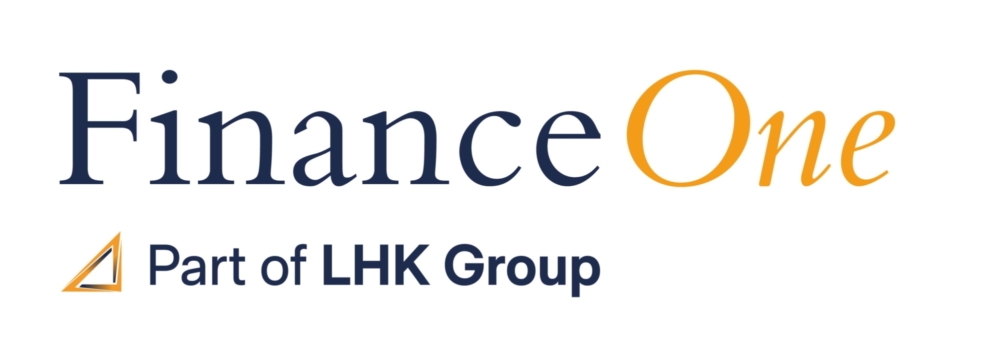Is it easier to get a mortgage through a mortgage broker or a bank? This article examines what each does, the pros and cons of each route and which is the best option for you when looking to get a mortgage.
Mortgage broker v lending institution – what’s the difference?
A mortgage broker brings together those who are looking for a mortgage with those that can provide the mortgage loan.
If you go directly to a lending institution looking for a mortgage, they will assess your application, decide if you qualify against their lending criteria and either lend you the money or not.
If you go to a mortgage broker, you are approaching multiple lending institutions in that one exercise. They will do the shopping around for you, as it can be quite arduous to complete multiple applications yourself.
What a mortgage broker does
So, the mortgage broker does not actually lend you the money, but they organise your mortgage loan from the lender most suited to you.
When you meet a mortgage broker, they will find out about your overall financial situation and history. Armed with this information, they then use their knowledge of the market to short circuit the application process. As they know what criteria each lender uses, they know which lender is most likely to approve your application and therefore they can save a lot of time that might otherwise be spent approaching those that are not suitable for you, either from a criteria perspective or from a product offering perspective.
The mortgage broker works with you to pull together the information and documentation that the lenders require to make their decision (such as your income, spending, tax returns, assets, investments, other borrowings, credit reports etc.). They use this to get an understanding of what you can afford to pay back and the maximum amount you have a chance of getting.
A good mortgage broker will bring you a lot of experience and insight into the market – which lenders are best suited to your needs, whether a cashback option is right for you, how to pitch the application in the terms that particular lender wants to see, how to prepare your finances to give you the best chance of approval and much more. Brokers can be particularly important for those who may have a tough time getting past the formulaic process that lenders use to assess applications.
Your broker makes the application(s) to the lender(s) on your behalf and will communicate whether you have been successful or not. But their work continues past this point, as they will continue to be the communications conduit between you and the lender until such time as your mortgage has been drawn down. They can be invaluable to those who are not familiar with the process of getting a mortgage, which can be complicated. The broker simplifies the process so that you just complete the tasks that they set for you, and this can take a lot of stress out of the situation.
What the Direct Lender does
The direct lender is often a bank but can be another type of lending institution. They may specialise in mortgage lending or not; they may be an online only operation or not. Many borrowers may approach the bank that they have a longstanding relationship with, and this may or may not have its benefits. It may involve providing less documentation initially, such as bank statements, as they will have visibility of these accounts on their own internal systems. But the process is the same as with a broker – gathering the information and submitting the application. And the rates that are offered through a broker are the same as those that are offered direct.
Communication through the process may be better because there isn’t the need to go through a third party, though lenders can be frustratingly slow to respond and outsourcing that can prove a smart move.
What are the Pros of working through a Mortgage Broker?
The principal benefits of working with a mortgage broker can be summarised as follows:
Having an expert in your corner
• Advice on getting your financial affairs in order to give yourself the best chance of getting approved/best rate/highest amount
• The mortgage application and approval process can be stressful and confusing. Your mortgage broker guides you through this and reduces the stress and time involved
Wider pool of lenders
• Improved chance of getting approved
• Better chance of getting the most suitable deal
• Not having to deal with each lender individually
What are the cons of working through a Mortgage Broker?
The only real con is the cost.
Some mortgage brokers charge a fee for their services in arranging the loan and their time supporting you through the process. However, not all do, as they all receive commission from the lender for bringing the mortgage business to them.
The amount of this commission is consistent across the board, at a fixed amount of 1% of the loan amount. The broker receives this as a one-time payment, paid to them approximately one month after you complete your mortgage drawdown.
Some brokers are tied to individual lenders, so you should ask them how many lenders they represent in order to maximise the number of lenders they can approach for you. You should ask your broker how many lenders they deal with, and whether or not they charge a fee.
(Finance One charges a fee of €295 plus VAT. We find our customers are very happy to do this because of the level of service that they receive. Check out our reviews here).
What are the Pros of dealing directly with a lender?
You may have a good history with your bank and they will have immediate access to your bank accounts without needing you to provide them with statements. They can give you a decision quickly.
What are the Cons of dealing directly with a lender?
If you just approach one lender then you may not be getting the best or most suitable deal on the market.
If you approach a number of lenders, it will take you time to approach and deal with each one separately.
If you are not an expert or comfortable in this area, then you may miss out on guidance on how to best position yourself to give yourself the best chance of approval with the best deal for you.
What are the main things to look for in a mortgage broker?
There are three main things to look for in a mortgage broker:
1. The number of lenders they deal with
2. What they charge
3. Their reputation
The first two are easy enough to find out – just ask the broker!
The third one can be tricky, and many people will rely on someone they know who may have introduced them. But a good mortgage broker should have a number of online reviews, so make sure to check these out on Google. Here’s a link to Finance One’s reviews, where you can check ours out.
In Summary
So, what’s the answer to the original question? Is it easier to get a mortgage through a mortgage broker or a bank? Well, for some people it could be just as easy to get a mortgage from their own bank directly as through a mortgage broker. But if you want to get the most suitable mortgage for you, knowing that you have covered the whole market and put yourself forward in the most positive light in order to get the best rate and have the best chance of getting approved, then you are definitely better off working with a mortgage broker like Finance One.
Your mortgage is normally one of the biggest financial decisions of your life. And getting the wrong one can be a very expensive exercise. Most people are not expert in this space, so it makes sense to use a mortgage broker to ensure you put yourself in a position to get the best mortgage available for you on the market. The cost of using a broker will be more than made up over the years, and in addition you save a lot of time and hassle in dealing with the lender(s). You also get the comfort of having an expert in your corner.
For the full set of tips on making yourself mortgage ready, download our Top Tips for First Time Buyers guide – 17 pages of knowledge from years of helping people get the mortgage they want.

